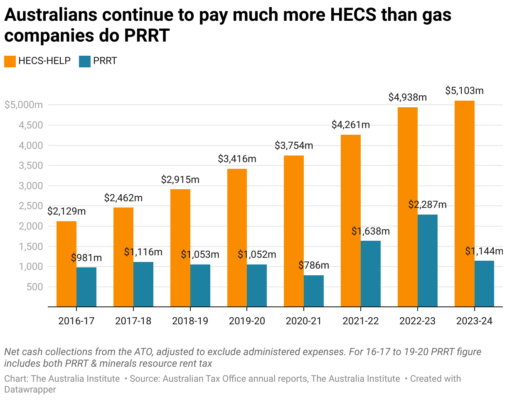When presented as a Peter Dutton proposal, 61.7% of Australians support the idea that gas exports should be taxed, 11.0% oppose. When presented as an Adam Bandt proposal, 59.0% support the idea and 12.3% oppose.
Furthermore, more than one in two Australians (55.7%) agree that Australia exports too much gas, 12.6% disagree, and an overwhelming majority of Australians (72.3%) support a parliamentary inquiry into whether Australia is getting a fair share of the profits from selling its gas, 7.6% oppose.
“Australia is awash with gas, and our research shows Australians know it. Forcing the gas industry to prioritise Australians ahead of exports is popular at the ballot box, and if would be foolish for whoever forms Government to miss this opportunity,” said Mark Ogge, Principal Advisor at The Australia Institute.
“With all sides of politics finally recognizing Australia’s gas export problems, the next Parliament will be in a good position to do something about it.
“Our research shows that Australians overwhelmingly support the idea that gas exports should be taxed, irrespective of which political party suggested it.”






